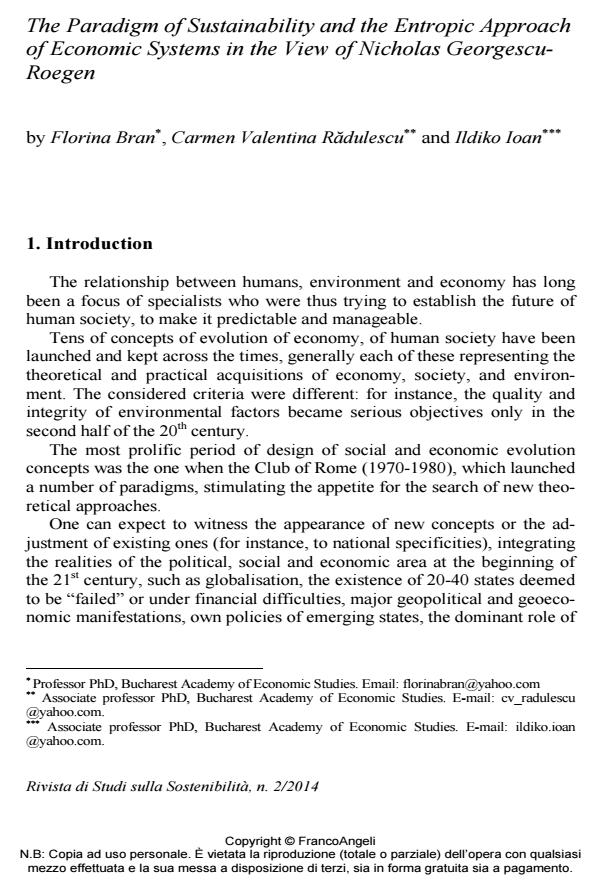The Paradigm of Sustainability and the Entropic Approach of Economic Systems in the View of Nicholas Georgescu-Roegen
Journal title RIVISTA DI STUDI SULLA SOSTENIBILITA'
Author/s Florinda Bran, Carmen Valentina Radulescu, Ildiko Ioan
Publishing Year 2014 Issue 2014/2
Language English Pages 14 P. 175-188 File size 165 KB
DOI 10.3280/RISS2014-002011
DOI is like a bar code for intellectual property: to have more infomation
click here
Below, you can see the article first page
If you want to buy this article in PDF format, you can do it, following the instructions to buy download credits

FrancoAngeli is member of Publishers International Linking Association, Inc (PILA), a not-for-profit association which run the CrossRef service enabling links to and from online scholarly content.
Sustainability will bring changes in all aspects of the everyday life by overposing ecology over economy. Departing from this prediction made more than a decade ago we are analysing at what extent the entropy based economic theory of value could contribute to the paradigm shift needed for a faster change toward sustainability. Concepts and rational of Nicholas Georgescu-Roegen developed several decades ago are revisited and interpreted through the lence of sustainability. Finally it is discussed how entropy management tools could be used for minimizing high entropy generation and creating incentives to support negentropy sources such as education, research, but also traditional ecological knowledge.
Keywords: Entropy, economic value, sustainability, bioeconomics, information
Florinda Bran, Carmen Valentina Radulescu, Ildiko Ioan, The Paradigm of Sustainability and the Entropic Approach of Economic Systems in the View of Nicholas Georgescu-Roegen in "RIVISTA DI STUDI SULLA SOSTENIBILITA'" 2/2014, pp 175-188, DOI: 10.3280/RISS2014-002011